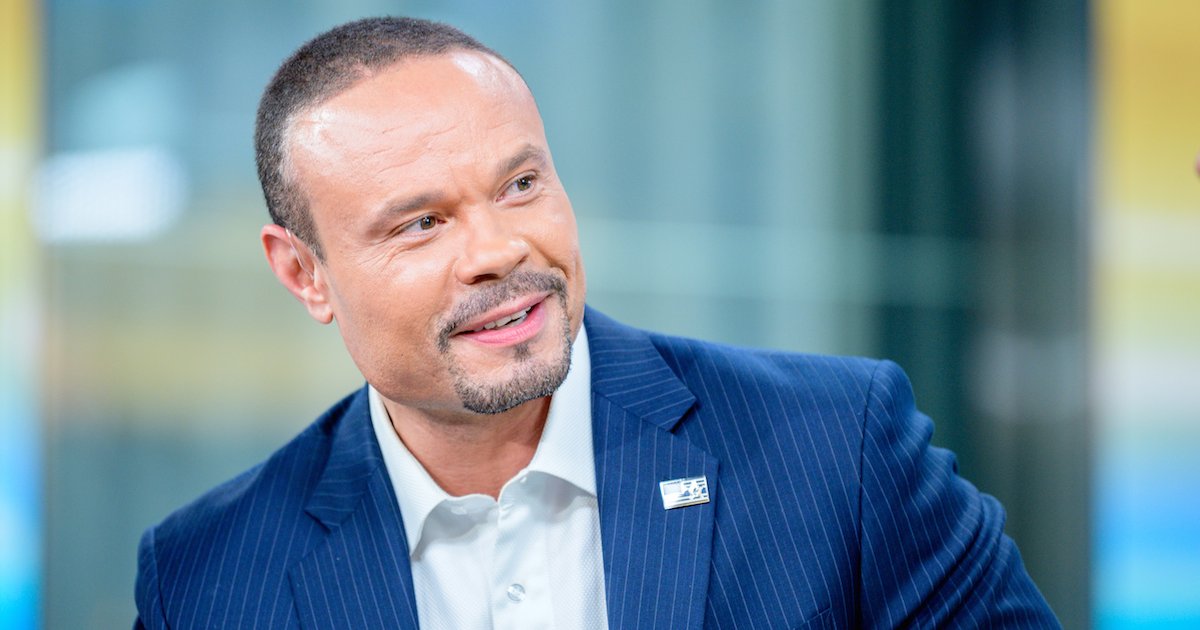Bongino's Chemo Treatment
- Radio host Dan Bongino, 46, was diagnosed with Hodgkin lymphoma last year after discovering a lump on his neck, and he’s sharing with fans the effect of chemotherapy on his appetite.
- Bongino underwent surgery after finding the lump on his neck, which he first believed to be a lipoma, a fatty tumor.
- Chemotherapy can have myriad effects on a person, including loss of appetite, fatigue, nausea, and hair loss.
Bongino has been relentlessly optimistic and open throughout his lymphoma battle. And we’re grateful that he’s sharing his cancer journey, and the effects of his treatment plan, with the world.
Bongino’s Lymphoma Battle
Bongino was diagnosed with Hodgkin lymphoma after discovering a lump on his neck, which he initially believed to be a lipoma a fatty tumor. "It was an enormous tumor. It was seven centimeters by seven centimeters," he told SurvivorNet in an earlier interview.
Following surgery on the lump, the radio host was diagnosed with Hodgkin lymphoma, which is the more treatable type of lymphoma, as compared to Non-Hodgkin lymphoma (which is the more common type). Lymphoma can be treated with chemotherapy, radiation therapy, and CAR T-Cell therapy.
Bongino’s Hodgkin lymphoma treatment plan includes chemotherapy. He’s not only keeping fans updated on the treatment’s side effects, but he’s also documenting it for them, too. In one Instagram post, he shared his “chemo smirk.”
View this post on Instagram
Chemotherapy & Fatigue
In an earlier interview, Dr. Zachary Reese, a Medical Oncologist at Intermountain Healthcare, spoke about how to combat the fatigue that may result from chemotherapy. He said, "What I typically tell patients is that [chemotherapy] is a bit of a roller coaster ride. You're going to feel tired about a week into treatment, and that's when you'll hit bottom. And then you'll start to come back up again just in time to do it all over."
Related: How to Protect Yourself From Infections During Chemotherapy Treatment
"[Fatigue] gets a little bit worse as you go from one cycle to the next," said Dr. Reese. "You'll feel a little more tired the second time around than you did the first, and it will last a day longer." He suggests to patients that they try to stay active if possible, to mitigate chemo’s effects. Being active also stimulates your appetite, which can help for people whose appetite is dulled by chemo. “This doesn't mean that anyone expects chemotherapy patients to run a 5K or a marathon, but getting out and doing 30 minutes of exercise a day can go a long way."
How to Fight Chemotherapy Fatigue
Effects of Chemotherapy
As Bongino describes, the side-effects of chemo can strongly affect your day-to-day life. Dr. Michael Ulm, a Gynecologic Oncologist at West Cancer Center, spoke about the effects of chemotherapy in a previous interview and said, “It can cause anemia. It can cause thrombocytopenia, which is a decrease in your platelet counts. It can cause neutropenia, which is a decrease in your white count. And that can affect your body’s ability to fight off infection.”
Related: How to Protect Yourself From Infections During Chemotherapy Treatment
"One of the things that patients worry most about is nausea with chemotherapy," said Dr. Ulm. “Everybody remembers what their parents went through or what their aunts and uncles went through probably 15 or 20 years ago…With modern medicine and modern antiemetics that you should never have severe nausea. And you should never throw up.”
Not Your Parents' Chemotherapy: New Solutions for Nausea, Hair Loss, and Other Chemo Side Effects
Learn more about SurvivorNet's rigorous medical review process.


